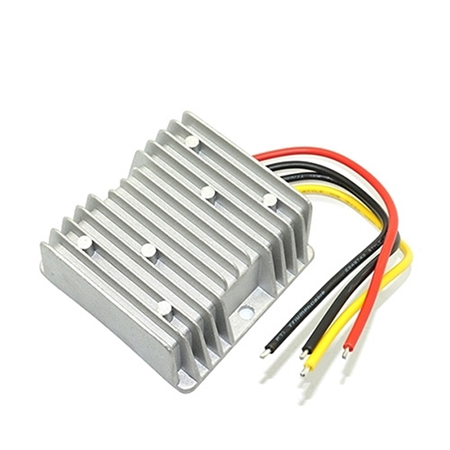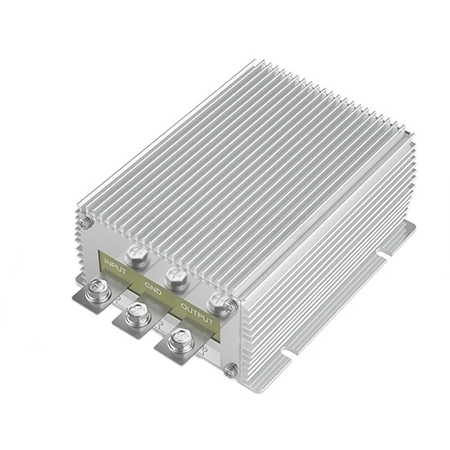A DC-DC converter is a device that converts a DC power supply into another DC power supply with different output characteristics. A DC-DC converter is a solution for system efficiency, especially for high-power systems. It is a power electronic device that converts DC energy into DC energy with controlled voltage or current required by the load. It is a kind of power electronic device that converts DC energy into DC energy with controlled voltage or current required by the load.
DC-DC converters are electrical energy conversion circuits or electrical and mechanical devices that convert DC power supplies to DC (or near DC) power supplies of different voltages. Their power can range from very small (small batteries) to very large (high voltage power conversion). Some DC-DC converters have the same reference point for the output voltage and the input voltage, while some DC-DC converters have the output voltage isolated from the input voltage.

DC-DC converters are electronic devices used whenever we want to change DC electrical power efficiently from one voltage level to another. Theyíre needed because unlike AC, DC canít simply be stepped up or down using a transformer. In many ways, a DC-DC converter is the DC equivalent of a transformer.
DC-DC converters are converters that change the value of DC voltage in a circuit. It can be divided into step-up DC-DC converter and step-down DC-DC converter. It can step up the voltage of DC power supply (such as battery, solar cell, fuel cell) from a dozen volts to several hundred volts, or step down to a few volts. According to the working state of the primary and secondary coils of the transformer in the converter, it is divided into forward converter and flyback converter.
As we all know, the phase-controlled rectifier circuit can get DC power, but it has the following problems: as the control angle increases the power factor decreases, the reactive power increases, which affects the quality of the power grid; because the output voltage has low harmonics, in order to ensure that the output voltage has a small ripple, there must be a large filter inductor and capacitor; in the DC motor speed control system, in order to avoid intermittent current, the minimum load current The smaller the current, the larger the inductor to ensure continuous current, the larger the volume and weight, the higher the cost; the phase control circuit has a large runaway time, resulting in slow dynamic response and poor rapidity. DC-DC converter can effectively solve the above problems.
DC-DC converters, also known as choppers, add DC voltage to the load intermittently by controlling the power electronics on and off, and change the average value of the output voltage by changing the duty cycle.

DC-DC converters vary greatly in size depending on the application; converters with several kilowatts of power are naturally very large, while those with less power can be made into compact modules.
Electrical devices that transform a range or fixed value DC voltage into another variable or fixed value DC voltage are collectively referred to as DC converters. Other concepts: an electrical device that converts a fixed DC voltage into a variable DC voltage; a voltage converter that effectively outputs a fixed voltage after transforming the input voltage.